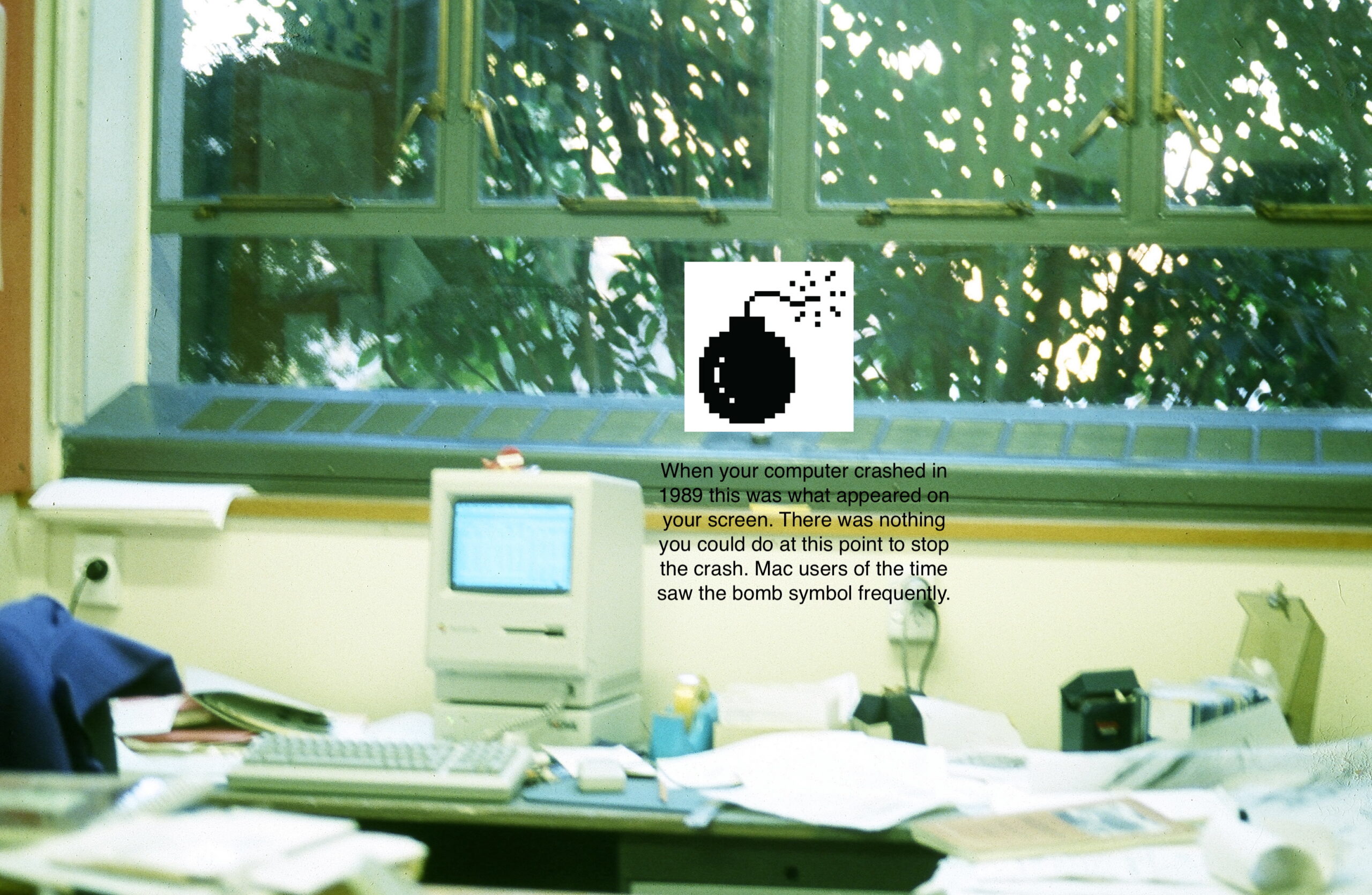
Why do I have an old blurry photo of a messy desk? It’s because I boggle at the gulf between this Mac Plus, my first personal computer, and the ability of today’s personal computers to use Artificial Intelligence to generate complex images and help people write better text. Soon they’ll be cooking your dinner and, to be honest, I would much rather have a computer that could cook my dinner than write my book. How might a computer write my book? Read on…
We were discussing developments in Artificial Intelligence with our neighbours over dinner this week. The development of Artificial Intelligence, or AI, is progressing at extreme speed. AI refers to the development of computer systems that perform tasks that normally require human intelligence, e.g. visual perception, speech recognition, decision-making, or translation between languages. Many of the research funding proposals I write refer to include research into AI or the application of AI.
AI is already commonly used in the digital world and beyond. For example, the very handy Google Translate we used recently in South Korea. You provide written or spoken text and the app translates the text into pretty much whatever language you would like. Another example of AI is the annoying marketing chatbots that pop up in the corner of your screen. Driverless cars are, of course, AI technology. The effect of AI is already being felt and will be felt more widely as time goes on. As is normal with humans, we have little idea as to what we’ve unleashed before it’s already set free – AI is a Pandora’s box and Stephen Hawking said AI could be the worst thing that’s happened to civilisation. Without doubt, AI has both good sides and bad sides. What we were discussing this week were the positives and negatives of AI delivering creative works, when they are trained on creative works made by humans. Once the AI is trained, it can produce new creative works without requiring further human input.
To explain, an AI programme was launched on August 22nd 2022 called ‘Stable Diffusion’. It can deliver an image based on text prompts. Here are some examples using the words ‘astronaut on a horse’. Stable Diffusion is pretty amazing, and is getting better all the time. How was this AI trained to create the images? It was trained on existing images, acquired from a trawl of the internet. You need to note here that the AI is not regurgitating, nor photoshopping existing images, it is creating a completely new image.

What are good things about Stable Diffusion?
- It can create amazing images!
- It uses open source programming – making the tool accessible. Stable Diffusion is available to anyone and usable by a person with a low end graphics processor in their computer and basic technical knowhow c.f. Google’s Imagen, which is not available to the public, or DALL-E where you go on a waiting list and pay for images. This is democratisation, an apparent example of the internet at its finest.
What may not be so good?
- Stable Diffusion doesn’t automatically filter images, which DALL-E does. You can generate sexual or violent images, no problem. Consumer-friendly versions of Stable Diffusion do include filtering, but it can be easily removed.
- Stable Diffusion is trained on other people’s images (including copyright images). It can be trained to do what creative humans do, using the work those humans created.
- Stable Diffusion is not (yet) aimed at mimicking the art of others. However, there are AI image generators that are being trained to do exactly that.
It’s these last two points I am particularly interested in today, given I’m currently indie publishing my first novel, ‘Broken is Beautiful’. While Stable Diffusion is all about images, AI writing tools are also being developed, trained on written texts scraped off the internet. These AI writing tools currently act as writing aids and prompts – that doesn’t seem so bad. They are a step up from spelling and grammar checkers, but they’re not writing your book. However, it’s only a matter of time until they are. There’s plenty of examples where AI is trained to mimic a specific author, e.g. Shakespeare. How do I feel about someone’s AI being trained to write like I can? Then there will be no point in me writing novels because, if someone likes my writing style, they can get an AI to do the same in an instant? Answer: I don’t feel very good about it!
I am not so concerned about copyright or legality (the scraped training data is, in fact, being legally used by Stable Diffusion, even though it is copyright). To me, the core question is, do we want AI to replace humans in this way? Once we answer that question, we can decide whether to embody our principles in the law, although I think the horse will have bolted far down the road by that point.
Do we want everyone to be able to generate creative works via a computer – democratising the process? Do we mind if AI takes other people’s creative efforts to achieve this? New creative works have always been developed from existing creative pieces. Or do we want creativity to remain something special which humans are incentivised to undertake? If everyone can ask their computer to write them a book, in the style they want, on the topic they want, why would anyone buy books written painstakingly and expensively, by humans? Worse, why would any human go to the enormous effort of writing and rewriting and rewriting and perfecting a book when an AI could do it in seconds, or less? The purpose of creativity is generally to share that with other humans, not just keep it in one’s own computer. If the world is flooded with material created by AIs, will material created by humans get a look in? Will it be a loss if humans don’t want to write books, or create images because no one else is going to see them?
Having re-embarked on a track of musical and written creativity in the last couple of years, after a long hiatus, I feel it does matter. Creativity is intrinsic to humans, as is story telling. What matters so much is not how well we do it, but that we do it at all. Humans who lose their ability to create are as reduced as humans who lose their ability to do physical exercise through inactivity.
There’s little evidence of these issues being discussed in New Zealand yet. I emailed the NZ Society of Authors to ask what they thought of AI being trained on human’s creative works. They said they’d definitely raise it as an issue at Board level. I emailed Copyright Licensing New Zealand, a non-profit owned by the NZ Publishers’ Association and The NZ Society of Authors and whose role is to help New Zealand’s creative people to record and manage their copyright. They said there’s nothing currently in NZ legislation about use of creative material to train AIs. I can write to the government about it, if I think it’s a problem. I looked at the AI Forum (a collaborative effort bringing together the NZ AI community) and found no reference to issues around creative material. A web search turned about articles about whether creative works by AIs can be protected, but little about protecting humans from creative AIs!
If we aren’t yet discussing the impact of AIs on creativity and their use of human’s creative works, while AIs are already being trained on our data, I fear my concerns are too late. However, I will continue to be a tiny flag waver in the morass.


Discover more from Jane Shearer
Subscribe to get the latest posts sent to your email.




One thought on “Democratisation or Theft?”